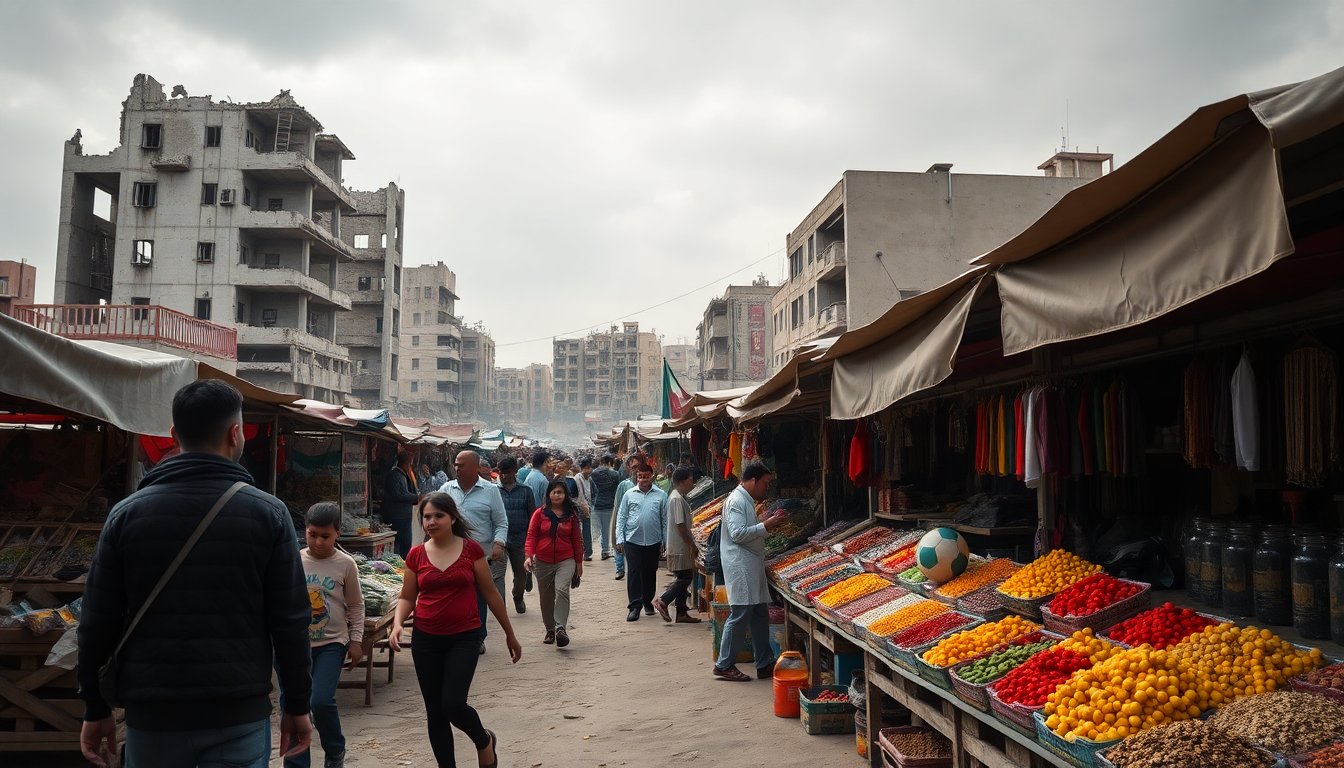Table of Contents
The Israeli-Palestinian conflict has persisted for decades, characterized by cycles of violence and ongoing attempts at negotiation. As global attention remains focused on the region, questions arise about the feasibility of achieving a peaceful resolution to this enduring dispute. The situation, influenced by military actions in Gaza and political maneuvers from various governments, remains both dynamic and complex.
Numerous factors shape the prospects for peace, including the roles of global powers, local governance, and grassroots movements advocating for change. This article examines these elements and considers whether an end to the occupation of Palestinian territories is on the horizon.
Current state of affairs in Gaza
The situation in Gaza has reached alarming levels, with humanitarian crises worsened by military engagements. The toll on civilians is severe, leading to international outcry and calls for ceasefires. Military actions have resulted in significant casualties, while the destruction of infrastructure leaves many without essential services.
Efforts to establish peace have encountered skepticism. Various leaders have proposed plans to address the conflict, yet implementing these proposals often faces substantial obstacles. Can the international community effectively facilitate dialogue between the two parties?
The role of international diplomacy
International diplomacy is crucial in the quest for peace in Gaza. Historically, countries like the United States have held significant sway in mediating discussions. However, changing political climates can disrupt consistent support for peace initiatives. Diplomatic engagement demands commitment and balance, often challenging due to the complexities of regional politics.
Moreover, the involvement of global organizations such as the United Nations is essential. Their efforts to promote dialogue and provide humanitarian aid are critical for alleviating immediate suffering. However, achieving lasting peace will require a comprehensive agreement addressing fundamental issues such as borders, refugees, and the status of Jerusalem.
Political challenges in the UK: a glance at Keir Starmer
Globally, political landscapes are evolving, and the UK is no exception. Keir Starmer, the leader of the Labour Party, faces significant challenges as he navigates his party’s stance on international issues, including the Israeli-Palestinian conflict. His leadership is vital in shaping the Labour Party’s approach to foreign policy and human rights matters.
As Starmer contends with internal party dynamics, the expectations of the electorate and the broader implications for UK foreign policy play a crucial role. Can he garner support for a more balanced approach to the Israeli-Palestinian situation? The discourse surrounding his political strategies could have repercussions extending beyond UK borders.
Public opinion and activism
Public sentiment regarding the Israeli-Palestinian conflict is evolving. Grassroots movements advocating for Palestinian rights have gained traction, influencing political discussions at various levels. Activists assert that shifts in public opinion can drive significant changes in policy and government actions.
Additionally, social media has emerged as a powerful tool for raising awareness and mobilizing support. Campaigns that highlight humanitarian crises and advocate for peace resonate with younger audiences, prompting a reevaluation of long-held beliefs. The strength of collective action plays a vital role in the pursuit of a just resolution.
Future prospects for peace
Numerous factors shape the prospects for peace, including the roles of global powers, local governance, and grassroots movements advocating for change. This article examines these elements and considers whether an end to the occupation of Palestinian territories is on the horizon.0
Numerous factors shape the prospects for peace, including the roles of global powers, local governance, and grassroots movements advocating for change. This article examines these elements and considers whether an end to the occupation of Palestinian territories is on the horizon.1
Numerous factors shape the prospects for peace, including the roles of global powers, local governance, and grassroots movements advocating for change. This article examines these elements and considers whether an end to the occupation of Palestinian territories is on the horizon.2


